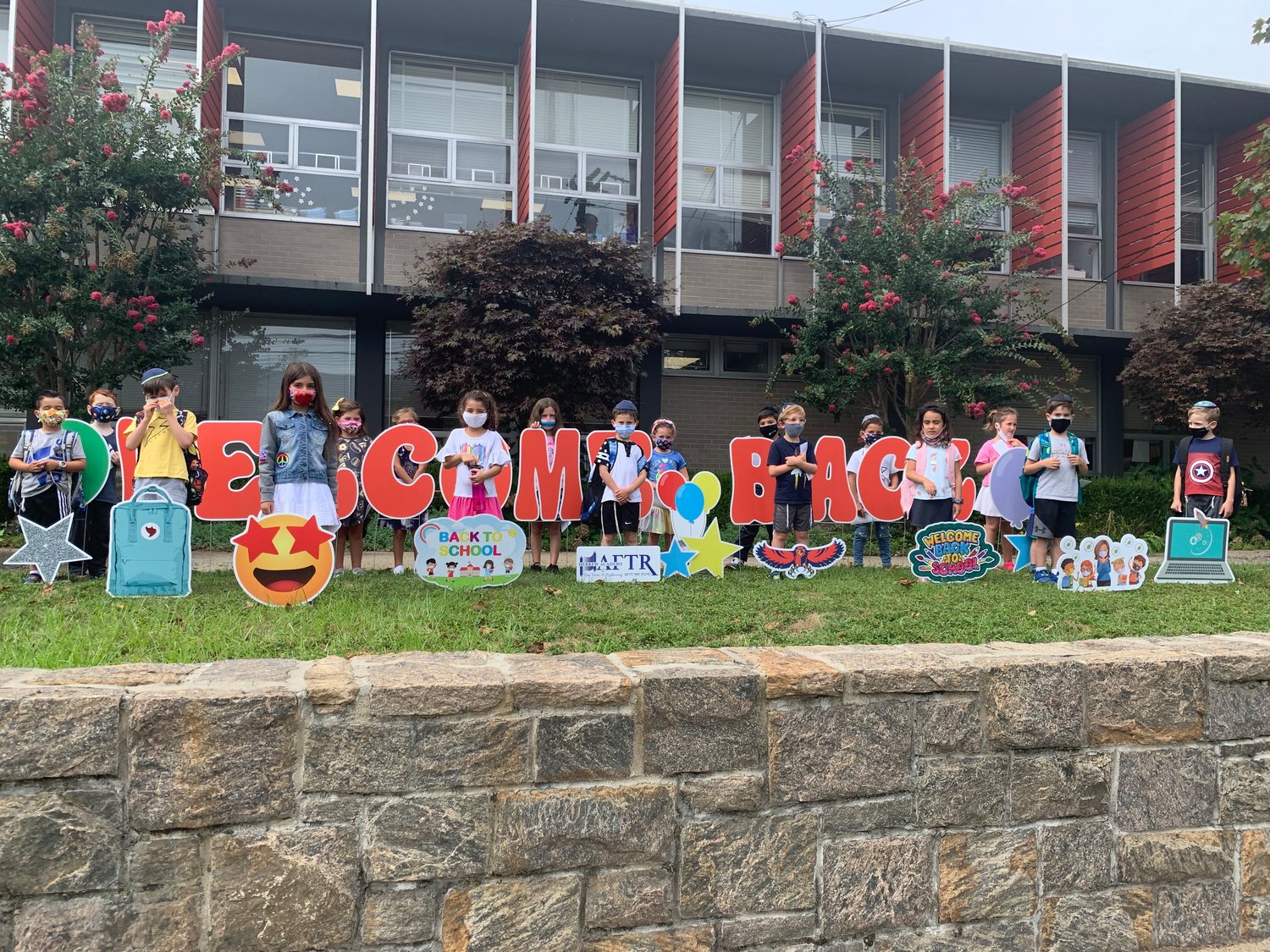HAFTR steers through Covid
Even before schools were closed last March as the coronavirus pandemic spread, officials at the Hebrew Academy of the Five Towns and Rockaway were keeping an eye on the growing crisis.
“The administration of HAFTR began closely monitoring the health risk that Covid threatened back in February 2020,” Executive Director Ari Solomon wrote in an email, adding that contingency plans were drawn up and preparations to implement virtual classrooms got under way.
Solomon is in his fourth year in the top job at the school, which includes an early-childhood center, a lower school, a middle school and a high school. Previously he directed HAFTR’S Hillel summer camp.
During the weeks that the school remained open last winter, HAFTR enhanced its cleaning and sanitation procedures at its high school campus in Cedarhurst as well as at the Lawrence complex that houses the lower schools and the administrative offices.
On Friday, March 13, and the following Monday, before there were any known cases of Covid-19 in the HAFTR community and days before schools were closed around the state, HAFTR officials decided to cancel in-person classes in order to familiarize the staff with the schools’ online learning system, test the technology and devise a long-term academic plan for virtual learning.
“HAFTR has been visionary and proactive throughout this pandemic,” Naomi Lippman, principal of the high school, wrote in an email. “At HAFTR High School, we began professional development for teachers in the early weeks of the pandemic, while we were all in school. Teachers created Google classrooms for every course and developed proficiency in Google Meet and Zoom.” A HAFTR principal for 23 years, Lippman is in her 14th year as the high school’s top administrator.
With the understanding that schools might eventually close, HAFTR officials had begun making plans in February to do more than simply keep its school community connected. “We dramatically increased our social media presence, posting daily challenges for families to take part in during down time,” Solomon said. “We created a new section of our website with links to interesting and fun activities, virtual tours and more, for parents and students to utilize. We ran evening events for the whole family to take part in, drive-by pickups and celebrations and even drive-in graduations.”
“Our school has been able to successfully respond to the pandemic’s challenges,” Joshua Gold, the middle school principal for the past five years, said in an email, “mainly due to the culture of collaboration and innovation that we have cultivated in our school since well before the pandemic.”
Planning for a new year
The summer brought more planning, because it remained unclear how schools would operate in 2020-21. HAFTR administrators, its parent-led advisory board and health professionals met regularly to study the available information on the pandemic and to devise varying plans for full-time in-person instruction, remote learning and hybrid combinations of the two. They considered the possibility of renting more space if social distancing guidelines made it necessary.
“Our goal for September was to be able to return to a full-time in-person educational experience for our teachers and students,” Lippman said. As part of a plan to maximize space in the high school, the building was divided into quadrants, and classrooms were refigured for social distancing. New remote teaching technology was installed [for students who opted to remain at home], ventilation was upgraded, and signage and hand sanitizers were added in “strategic locations.” “We communicated the plans with teachers, students and parents,” Lippman said, “and trained teachers in the use of the new classroom technology.”
In August, HAFTR opened all of its schools for in-person learning — though there are some remote students — and has remained open, Solomon said. “We have learned how strong the HAFTR family is,” he said. “We have learned how important the community is in supporting our students’ educational successes.”
School activities also continue, ranging from Health Week to the youngest students’ celebration of the 100th day of school to the virtual clubs at the high school.
“Participation in clubs via Zoom allows students in different grades to join together in the same activities while maintaining physical separation,” Lippman said. “Students can participate and compete with students from other yeshiva high schools, including in different cities across the U.S.”
Student mental health has also been a focus. “We believe that social [and] emotional development is the foundation upon which academic learning is built,” Gold said. “We facilitate a comprehensive wellness curriculum to ensure we are providing the tools our students need to be their best selves.”
In the past year, Gold, Lippman and Solomon all noted, aspects of their jobs have been altered because of the increased focus on safety and health — and innumerable Zoom meetings. “Our job,” Gold said, “remains to facilitate a challenging educational program in a supportive environment that ensures every student is positioned to feel empowered in their learning, and has agency in their growth.”
Though she has not changed her overall approach to her job, Lippman said, she has worked to strengthen relationships with colleagues, students and parents. “I anticipate that we will continue to brainstorm and reimagine every facet of our academic, guidance, religious and extracurricular programming through the lens of Covid-19 for the near future,” she said.
The pandemic has been a learning experience, Solomon said. “Like everything in life, the more you do something, the more proficient you become at it,” he said. “Our teachers quickly learned how to effectively keep all our students engaged and learning at the highest level.”
Have an opinion on how schools have handled the pandemic? Send a letter to jbessen@liherald.com.






